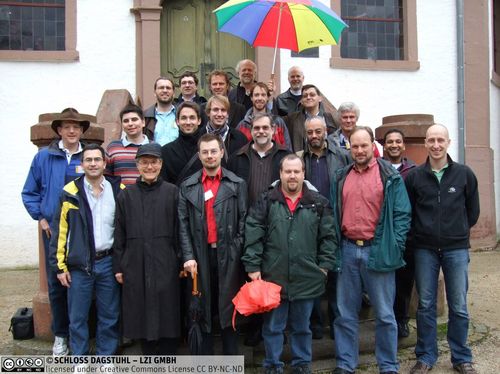Dagstuhl-Seminar 08461
Planning in Multiagent Systems
( 09. Nov – 14. Nov, 2008 )
Permalink
Organisatoren
- Jürgen Dix (TU Clausthal, DE)
- Edmund H. Durfee (University of Michigan - Ann Arbor, US)
- Cees Witteveen (TU Delft, NL)
Kontakt
- Annette Beyer (für administrative Fragen)
Planning in Multiagent Systems, or Multiagent Planning (MAP for short), considers the planning problem in the context of multiagent systems. It extends traditional AI planning to domains where multiple agents are involved in a plan and need to act together.
Research in multiagent planning is promising for real-world problems: on one hand, AI planning techniques provide powerful tools for solving problems in single agent settings; on the other hand, multiagent systems, which have made significant progress over the past few years, are recognized as a key technology for tackling complex problems in realistic application domains.
The motivation for this seminar is thus to bring together researchers working on these different fields in AI planning and multiagent systems to discuss the central topics mentioned above, to identify potential opportunities for coordination, and to develop benchmarks for future research in multiagent planning.
The seminar addressed, through presentations, panel discussions, and break-out sessions, the following topics:
- Coordination and Task Allocation
- Dynamic and Temporal Planning
- Robust Planning
It is our impression that the participants enjoyed the great scientific atmosphere offered by Schloss Dagstuhl, and the scientific program which offered them ample opportunities for discussion. We are grateful for having had the opportunity to organize this fruitful seminar. Special thanks are due to the whole Dagstuhl staff for their assistance in the organization and the running of the seminar.
- Tristan Behrens (TU Clausthal, DE)
- Mark Boddy (Adventium Labs - Minneapolis, US)
- Rafael H. Bordini (Federal University of Rio Grande do Sul, BR) [dblp]
- Nils Bulling (TU Clausthal, DE) [dblp]
- Mathijs de Weerdt (TU Delft, NL) [dblp]
- Jürgen Dix (TU Clausthal, DE) [dblp]
- Edmund H. Durfee (University of Michigan - Ann Arbor, US)
- Robert P. Goldman (SIFT - Minneapolis, US)
- Gal A. Kaminka (Bar-Ilan University - Ramat Gan, IL) [dblp]
- Tomas B. Klos (TU Delft, NL) [dblp]
- David J. Musliner (SIFT - Minneapolis, US)
- Dana S. Nau (University of Maryland - College Park, US)
- Brammert Ottens (EPFL - Lausanne, CH)
- David Pynadath (USC - Playa Vista, US)
- Valentin Robu (CWI - Amsterdam, NL)
- Stephen Smith (Carnegie Mellon University - Pittsburgh, US) [dblp]
- Renze Steenhuisen (TU Delft, NL)
- Pedro Szekely (USC - Marina del Rey, US) [dblp]
- Roman van der Krogt (University College Cork, IE)
- David E. Wilkins (SRI - Menlo Park, US)
- Cees Witteveen (TU Delft, NL) [dblp]
- Yingqian Zhang (TU Delft, NL) [dblp]
Klassifikation
- artificial intelligence / robotics
- semantics / specification / formal methods
- verification / logic
Schlagworte
- planning
- multiagent systems
- reasoning


